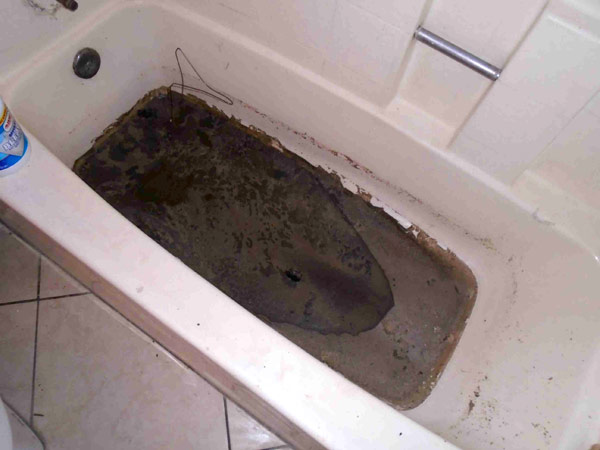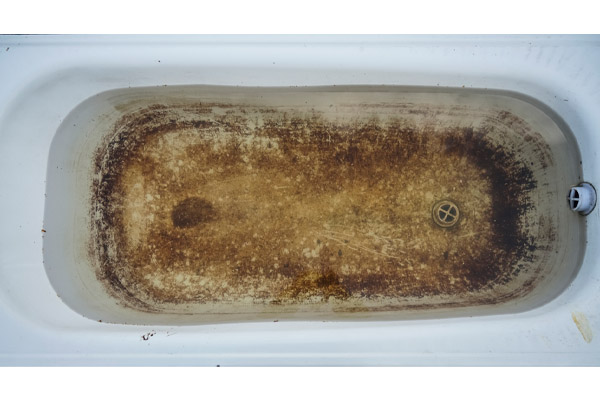Unveiling the Causes of Drainage in the Bathtub
Unveiling the Causes of Drainage in the Bathtub
Blog Article
We've noticed this post about Why is There Sewage Coming Up Through the Bathtub directly below on the internet and accepted it made perfect sense to relate it with you in this article.

Sewage back-up in the bathtub can be a stressful and unsanitary issue for any homeowner. Not just is it inconvenient, yet it likewise postures severe health dangers and indicates underlying issues with the plumbing system. Comprehending why sewage is coming up with the bath tub is critical for taking suitable action to attend to the issue efficiently.
Intro to the Issue
Understanding the Issue
When sewer draws back up right into the bath tub, it's a clear indicator of a problem with the drain system. The wastewater that should be streaming far from your home is instead finding its way back into your living space, which can cause significant damage and carcinogen.
Prospective Causes
Several factors can contribute to sewage back-up in the tub. From clogs in the sewage system line to problems with the plumbing framework, recognizing the root cause is vital for locating a service.
Typical Factors for Sewer Back-up
Clogs in the Sewer Line
Among the most common reasons for sewer backup is an obstruction in the sewer line. This can occur because of the buildup of debris, grease, or foreign objects in the pipelines, preventing correct flow and causing sewer to support into your tub.
Tree Root Breach
Tree origins looking for dampness and nutrients can penetrate sewer lines through small splits or joints. Gradually, these origins can grow and increase, triggering substantial damage to the pipelines and leading to sewage backup problems.
Aging Infrastructure
Older homes may have dated plumbing systems that are more at risk to rust, fractures, and damage. As pipelines age, they become more susceptible to leaks and obstructions, raising the probability of sewage back-up incidents.
Heavy Rainfall or Flooding
During periods of heavy rainfall or flooding, the sewer system might end up being overwhelmed with excess water, causing back-ups and overflows. This can cause sewer backing up right into bath tubs and various other fixtures inside the home.
Health Risks Related To Sewage Backup
Contamination of Supply Of Water
Sewer backup can infect the supply of water in your house, presenting a serious health and wellness threat to you and your household. Direct exposure to infected water can lead to intestinal concerns, skin infections, and various other illnesses.
Spread of Illness
Sewer includes unsafe bacteria, viruses, and bloodsuckers that can cause a variety of conditions, including liver disease, cholera, and gastroenteritis. Entering contact with sewer or contaminated surfaces puts you at risk of infection.
Mold and mildew Growth
Moisture from sewage backup can create suitable problems for mold and mildew development in your house. Mold and mildew spores can aggravate respiratory system troubles and trigger allergies in delicate individuals, making prompt cleaning essential.
Indicators of Sewage Back-up
Foul Odors
Unpleasant smells originating from drains or components, especially in the bathroom, may show sewage backup concerns. These odors are usually solid and consistent, signifying an issue that calls for immediate focus.
Slow Draining Fixtures
Tubs, sinks, and bathrooms that drain pipes slowly or otherwise at all could be experiencing sewage backup. If multiple components are impacted simultaneously, it's likely that the problem stems from an usual factor, such as the primary sewer line.
Gurgling Sounds
Unusual gurgling or bubbling sounds coming from drains when water is running somewhere else in your house are a sign of air caught in the plumbing system. This air accumulation can arise from sewer back-up and need to be examined immediately.
Immediate Actions to Take
Switching Off Water System
In the event of sewage back-up, it's necessary to turn off the water to stop additional contamination and damages. Locate the primary water shutoff valve in your house and shut it off until the problem can be settled.
Calling a Specialist Plumber
Taking care of sewer back-up is not a do it yourself task. Contact a certified plumber with experience in managing sewage-related problems to evaluate the scenario and do required repair work or clean-ups.
Staying Clear Of Contact with Contaminated Water
Till the sewage backup is fixed, stay clear of contact with contaminated water to avoid the spread of germs and virus. Put on protective gear if you need to remain in the affected area and clean your hands extensively later.
Preventive Measures
Regular Maintenance of Drain Lines
Set up routine inspections and maintenance of your sewage system lines to recognize and resolve possible issues before they rise right into significant issues. This can include cleaning out debris, examining for tree origin intrusion, and repairing any broken pipes.
Installing Bayou Valves
Consider mounting backwater shutoffs in your plumbing system to prevent sewage from receding into your home throughout periods of heavy rainfall or flooding. These valves instantly close when water starts backing up, shielding your residential property from contamination.
Proper Disposal of House Waste
Avoid purging anything other than toilet tissue and human waste down the commode to prevent blockages and clogs in the sewage system line. Dispose of grease, oil, and other house chemicals effectively to lessen the threat of plumbing troubles.
Tidying up After Sewage Backup
Disinfection Procedures
Completely sanitize and sanitize affected areas after sewage back-up to remove hazardous bacteria and stop mold development. Usage proper cleansing items and protective gear to ensure secure and reliable clean-up.
Remediation of Affected Locations
Repair any damage to floor covering, walls, or components caused by sewer back-up. Relying on the level of the damages, you might require to replace carpets, drywall, or other products to restore your home to its pre-loss condition.
Why Is Water Backing Up in My Bathtub When I Flush My Toilet?
What to do about a sewer line clog
First, don’t bother with plunging. No amount of plunging will dislodge the clog in a sewer line. The clog is too far away. Plungers are for clogs in the toilet itself, not the sewer line. Plus, the most likely causes of a sewer clog are:
Tree roots Flushed toys or feminine products Grease buildup Those items don’t move easily. And in the case of tree roots, the roots need to be cut out of the pipe and the pipe will need to be repaired.
You’ll need a closet auger. A closet auger is a type of plumber’s snake with a protective cover to keep from scratching the delicate porcelain toilet. If the clog is further down, you may need to remove the toilet or use one of your cleanouts to get to the clog.
We also recommend doing a video inspection of the drain to ensure that the cause of the clog has been completely removed. Otherwise, you could have the same problem again in a few days or weeks.
https://mspplumbingheatingair.com/blog/why-is-water-backing-up-in-my-bathtub-when-i-flush-my-toilet

I was made aware of that write-up on What To Do If Sewage Starts Backing Up Into the Shower through someone on a different web address. Are you aware of anybody else who is in to the subject? Take a moment to share it. We truly appreciate reading our article about Why sewage is coming up through your bathtub.
Find Out More
Report this page